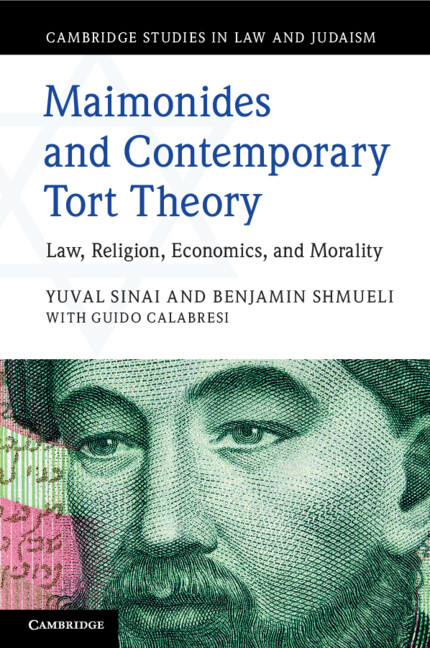Maimonides and Contemporary Tort Theory
Maimonides lived in Spain and Egypt in the twelfth century, and is perhaps the most widely studied figure in Jewish history. This book presents, for the first time, Maimonides' complete tort theory and how it compares with other tort theories both in the Jewish world and beyond. Drawing on sources old and new as well as religious and secular, Maimonides and Contemporary Tort Theory offers fresh interdisciplinary perspectives on important moral, consequentialist, economic, and religious issues that will be of interest to both religious and secular scholars. The authors mention several surprising points of similarity between certain elements of theories recently formulated by North American scholars and the Maimonidean theory. Alongside these similarities significant differences are also highlighted, some of them deriving from conceptual-jurisprudential differences and some from the difference between religious law and secular-liberal law.
- Establishes rational, systematic legal theory that allows for a full presentation and overview of Maimonides' comprehensive conception of tort law
- Provides a new perspective on the understanding of Jewish legal and philosophical tradition
- Suggests that Maimonides' approach also holds some lessons for contemporary tort theories
Product details
July 2020Adobe eBook Reader
9781316845967
0 pages
0kg
6 b/w illus.
This ISBN is for an eBook version which is distributed on our behalf by a third party.
Table of Contents
- Introduction
- 1. Initial presentation
- 2. Tort liability in Maimonides' Code: the downside of the common interpretation
- 3. The foundations of the Maimonidean theory: different goals for different categories of damage
- 4. The deontological and religious elements of Maimonides' tort theory
- 5. Consequentialist considerations in the Guide for the Perplexed
- Appendix to chapter 5: the rules of liability and contributory Negligence according to Maimonides in the Guide 3:40 compared with Calabresi and Posner
- 6. Revisiting the problematic texts of the Code in light of the Guide and contemporary scholarship
- 7. Maimonides' standard of care: a differential liability model
- 8. Maimonides as a pluralistic-differential scholar and contemporary tort law theories: a dialogue and lessons
- 9. Reflections on Maimonides' tort theory (Guido Calabresi)
- Index.




